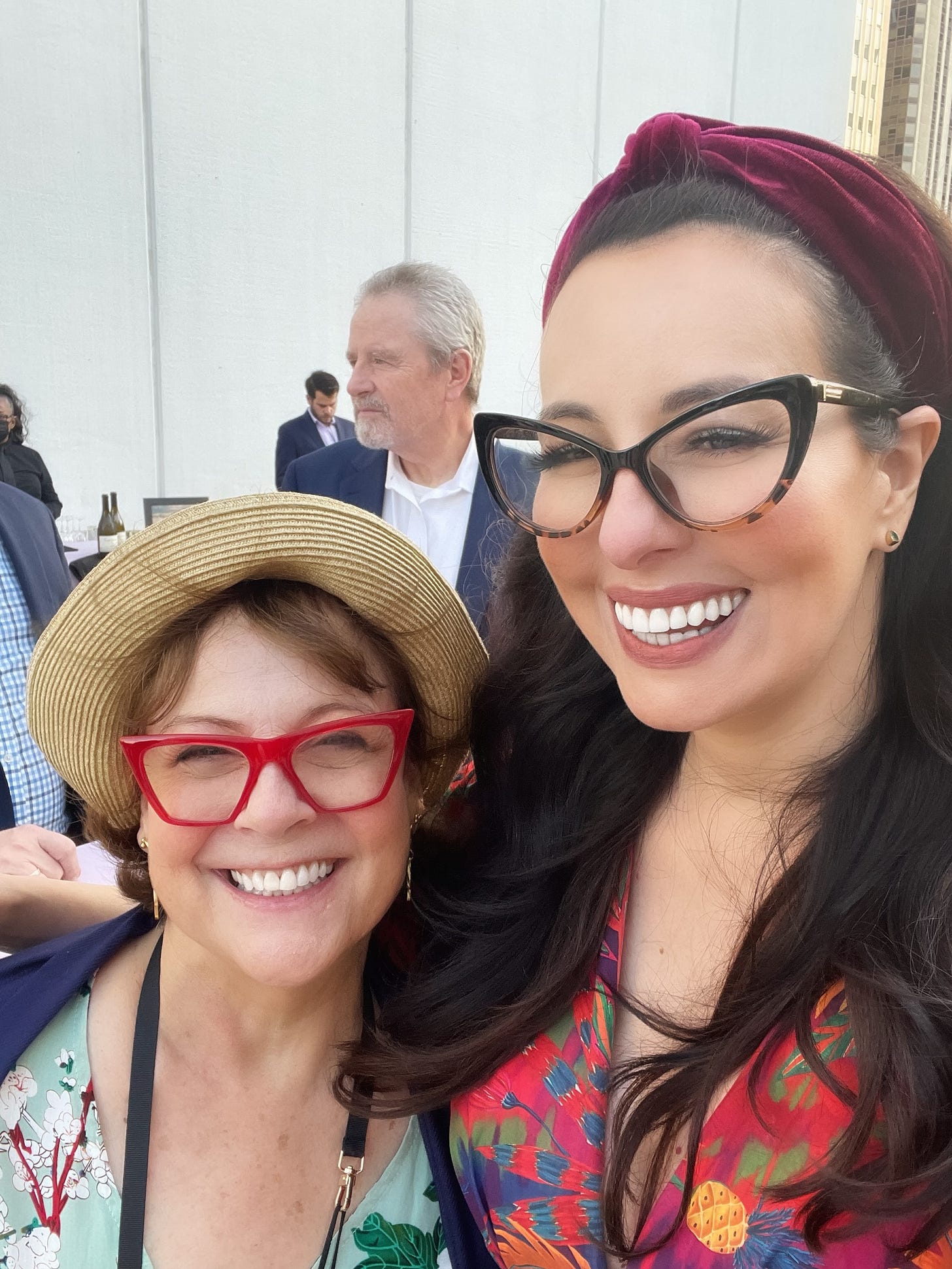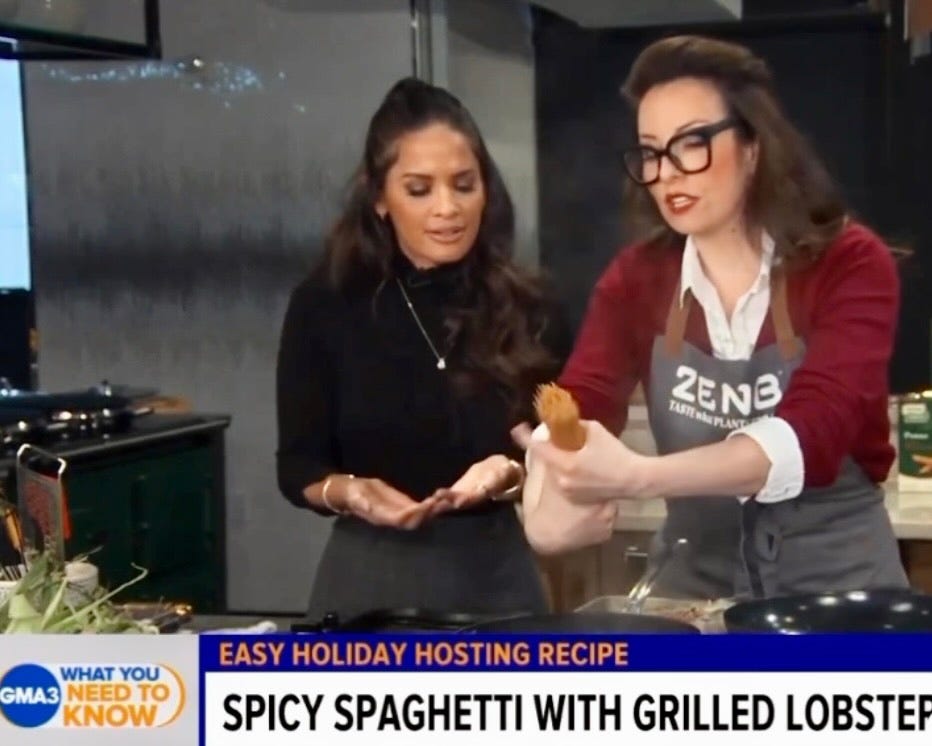My mother didn't smile much. She worked two jobs, took care of two kids, and chain-smoked. A Colombian raised in Puerto Rico, she stuck out in suburban Houston. She wore her hair in an afro spritzed til it dripped with jerry curl. She had cinnamon-colored skin that she bathed in cocoa butter. Her thick accent forced her to add an EH to every S. Instead of "bucks," she'd say "buck-sehs."
In her younger days, my mother was a beauty pageant queen and lived in the fanciest neighborhood in San Juan with a much older man that was worth millions. But everything changed in her late 20s when she left her wealthy philandering beau and moved my twin brother and me from our island paradise to one of the poorest neighborhoods in Houston, Texas.
To make ends meet, my mother worked in data entry during the week and cleaned rich white women's houses on the weekends. In the 80s, it was perfectly ok to hiss racist slurs at brown women as they shopped at the supermarket, to grab their ass as they walked down the street, and to make fun of their accents while they tried to get their work done.
I understand why my mother didn't smile much. Why she'd glower at her coffee cup as she chain-smoked in our second-story apartment patio overflowing with plants. She had to take care of too many things and swallow her pride too many times in a place where she never felt like she truly belonged. I only remember her letting loose during the holidays when she and her sisters got together to dance and drink coquito, a traditional Puerto Rican rum drink made with coconut milk.
My mother and my two tias threw down in our tiny apartment with dingy brown shag carpeting. They squeezed into brightly colored dresses and impossibly high heels and screamed "Botate!" at each other. They teetered in their stilettos, singing at the top of their lungs and dancing as if their lives depended on it, a glass of coquito in one hand, an Eve 100 in the other. The three sisters made such a ruckus that our next-door neighbor knocked on the door to ask them to keep it down. But instead, my mother let loose a throaty laugh as she pulled him into the apartment to teach him how to salsa.
I was mesmerized as I watched the joy burst out of my mother like tiny bubbles rising in a glass of Seven-Up. It was as if coquito brought her back to life, back to a place where how she looked and talked was celebrated instead of demeaned. It brought her back to Puerto Rico.
I didn't understand the magic of coquito until I made my first batch many decades later. It was 2019, and I was putting together a dinner to fundraise for Save The Children Puerto Rico with Giovanna Huyke, one of our island's most celebrated chefs. There aren't many Puerto Ricans in Los Angeles, and I invited every single one I knew, along with my nearest and dearest. One of my best friends, Felicia Fasano, graciously opened her home to us as a space for the event.
We’d been promised a $10,000 donation for a five-course dinner using Latino food products, and Giovanna and I cooked for two days straight. I made an oxtail pastelon, a lasagna layered with slices of sweet ripe plantain instead of pasta. Giovanna made chuletas can-can, thick-cut pork chops with the blistered crunchy rind still on them. I put together a peppery arugula salad with chopped mango, kiwi, and avocado and dressed it with passion fruit vinaigrette. Giovanna made a velvety pate from morcilla, a traditional island blood sausage, and placed it on crispy tostones, fried slices of green plantain. I prepared a luscious coconut milk panna cotta with tangy sweet plantain jam for dessert. But it was Giovanna's coquito that took everyone back to Puerto Rico. As I served the creamy concoction, Giovanna told us how coquito originated during prohibition in Puerto Rico.
Puerto Ricans wanted no part of prohibition, but as a colony controlled by the US, they had no choice in the matter. So crafty islanders started mixing moonshine with coconut milk. They could get away with drinking it in broad daylight as the fattiness of the concoction made it nearly impossible to smell the liquor. It was from these illegal cocktails that coquito was born.
As we sipped the creamy drink, the love for our island was so strong it felt like it had a seat at the table. So much so that my friend Arturo Del Puerto stood up and began singing En Mi Viejo San Juan. If you're unfamiliar with the song, it's an anthem for many Puerto Ricans living far away from our Caribbean homeland. It only took seconds for everyone to get teary-eyed and start singing along with him. At that moment, I finally realized coquito's true magic. This elixir had the power to bring us back momentarily to a time and place where we were fully ourselves, a place where we belonged. That day we raised $10,000 for the children of Puerto Rico. I will never forget it. In case you missed it, the video of Arturo singing is at the top of this post.
I have made Giovanna's coquito recipe every year since to take me back home during the holidays. So I wanted to share it with you. I hope you get a chance to make it because it truly is divine. PS If you don't follow Giovanna, check out her Instagram. She's one of our island's culinary treasures. She’s one of the first women in Puerto Rico to earn the title of Chef and the very first Food TV Chef in our history. She taught generations of Puerto Ricans to cook. Here's an article I wrote about her for The Spruce Eats.
If you're a paid subscriber, I'll show you how to make Giovanna's coquito in a virtual, live cooking class this Tuesday. I’ll also be there to answer any of your cooking questions. More info is coming your way soon!
GIOVANNA HUYKE'S COQUITO RECIPE
Ingredients
1 1/2 cups of white rum
1/4 cup of gold or brandy rum
2 cans of coconut milk
1 can of sweetened condensed milk
1 tbsp vanilla
1 cup of cream coconut
2 tsp ground cinnamon
Directions
Mix all of the ingredients in a blender until incorporated. Store in air-tight bottles.
APPEARANCES
I was on Good Morning America 3 this week, showing off how to make a delightful Spicy Spaghetti and Grilled Lobster dish with ZENB pasta. It's a simple recipe, and it's endlessly adaptable. You can sub the lobster tail for shrimp, chicken, or lion's mane mushrooms and make a quick and easy holiday dinner to feed a crowd.
If you have yet to try ZENB pasta, I recommend you get a box and taste it. It impressed me so much that I became their chef-in-residence. It's gluten-free, low in carbs, and high in fiber and protein. The incredible thing is that they make it with one ingredient: yellow peas. So it doesn't get gummy and clump together like most gluten-free pastas, a total win in my book.
Find the Spicy Spaghetti and Grilled Lobster recipe at ZENB.com, along with quite a few others. You'll also find my new show, Chef Ballers, there. Two professional ball players, Alex Caruso and Te'a Cooper, compete in a basketball court converted into a fully loaded kitchen to see who the best Chef is. It's hilarious.
MY FAVORITE COMMENT THIS WEEK
Spanglish is a place for us to trade recipes and stories of what it means to be Latino in the diaspora. I love hearing from you because it makes me feel like I have a little family of people who understand me deeply. This comment from Adriana touched me this week:
One of the biggest regrets of my life was not getting my grandmother’s coquito recipe before she passed away. Every year I tinker with the proportions but feel I never get it right. Her secret ingredient was anise liqueur, the inexpensive kind you get with the coffee beans for chichaíto.
Thank you so much for sharing your story, Adriana! My Abuela’s lost recipes are also some of my biggest regrets. But it does give us the opportunity to experiment to try and replicate them. Let me tell you, that moment when you actually nail it and those flavors hit is so powerful it will bring tears to your eyes.
Friends, I love getting to know more about you. So, if you have a moment, I'd like to hear about your favorite holiday memory or the recipe you’ve been chasing for years. If you have a holiday recipe to share, please do so. Maybe one of you has a coquito recipe with anise! Wouldn’t it be incredible if we could bring that joyous moment to Adriana?
Until next week, mi gente. Gracias por estar aquí.








Share this post